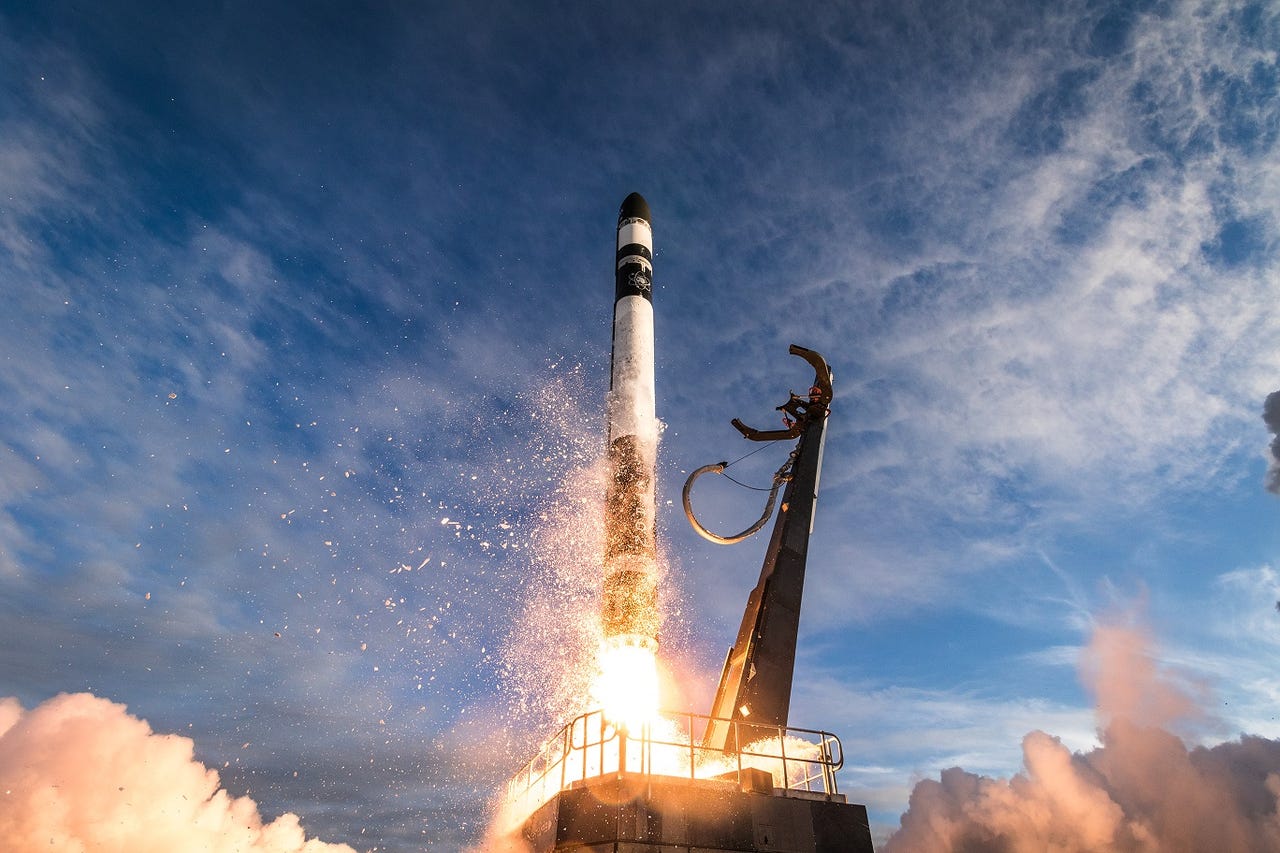Rocket Lab launches first NASA CubeSat mission


Rocket Lab on Sunday successfully deployed satellites to orbit for NASA, marking the New Zealand-based startup's third orbital mission of the year.
The mission, Educational Launch of Nanosatellites (ELaNa)-19, left Zealand's Mahia Peninsula at 7:33pm local time out of the company's Rocket Lab Launch Complex 1.
"After being launched to an elliptical orbit, Electron's Curie engine-powered kick stage separated from the vehicle's second stage before circularising to a 500x500km orbit at an 85 degree inclination," the company wrote of the mission.
56 minutes into the mission, Rocket Lab said the 13 satellites on board were individually deployed to their designated orbits.
Read also: Australian Space Agency to call Adelaide home
This mission marks the first time NASA CubeSats received a dedicated ride to orbit on a commercial launch vehicle, with the California-headquartered startup having been awarded the ability to launch under a Venture Class Launch Services (VCLS) Agreement.
VCLS is managed by NASA's Launch Services Program, headquartered at Kennedy Space Center in Florida.
"We're providing small satellite customers with more control than they've ever had, enabling them to launch on their own schedule, to precise orbits, as frequently as they need to," Rocket Lab founder and CEO Peter Beck said following the mission.
The ELaNa-19 mission follows Rocket Lab in November completing the It's Business Time mission, which was originally slated for launch in June, with seven payloads put into orbit.
The mission was the company's first commercial launch, and saw it deploy two Spire Global Lemur-2 satellites: The Irvine CubeSat STEM Program IRVINE01 educational CubeSat, a drag sail technology demonstrator that reduces space junk designed and built by High Performance Space Structure Systems; and a GeoOptics satellite built by Tyvak Nano-Satellite Systems, as well as a pair of Proxima satellites for Fleet Space Technologies.
"To launch two missions just five weeks apart, and in the first year of orbital flights, is unprecedented," Beck added on Sunday. "Regular and reliable launch is now a reality for small satellites. The wait is over."
Beck called the ELaNa-19 mission a "forward-thinking approach from NASA" in acquiring launch services, which he said recognises the role small satellites are playing in exploration, technology demonstration, research, and education.
While announcing his company had raised $140 million last month, Beck also said Rocket Lab will be building additional launch pads and will be boosting its capability to launch weekly.
"This funding also enables the continued aggressive scale-up of Electron production to support our targeted weekly flight rate," he said. "It will also see us build additional launch pads and begin work on three major new R&D programs."
The company said the next Rocket Lab Electron vehicle will be on the pad at Launch Complex 1 in January 2019.
RELATED COVERAGE
It's Business Time: Rocket Lab mission finally launches from New Zealand
After first scheduled to launch in late June, Rocket Lab's It's Business Time has successfully completed its mission.
Rocket Lab secures $140m to help reach weekly launch target
Funding announcement follows the company earlier this month successfully launching seven payloads to orbit.
Rocket Lab could be the next SpaceX and it's ready for its first big launch (CNET)
The startup's rockets aren't as huge as the SpaceX Falcon 9, but that doesn't mean they aren't a big deal.
Japanese startup rocket explodes in flames
A second rocket developed by Japanese start-up Interstellar Technologies has failed at lift-off, with the 10-metre rocket exploding in a fireball.